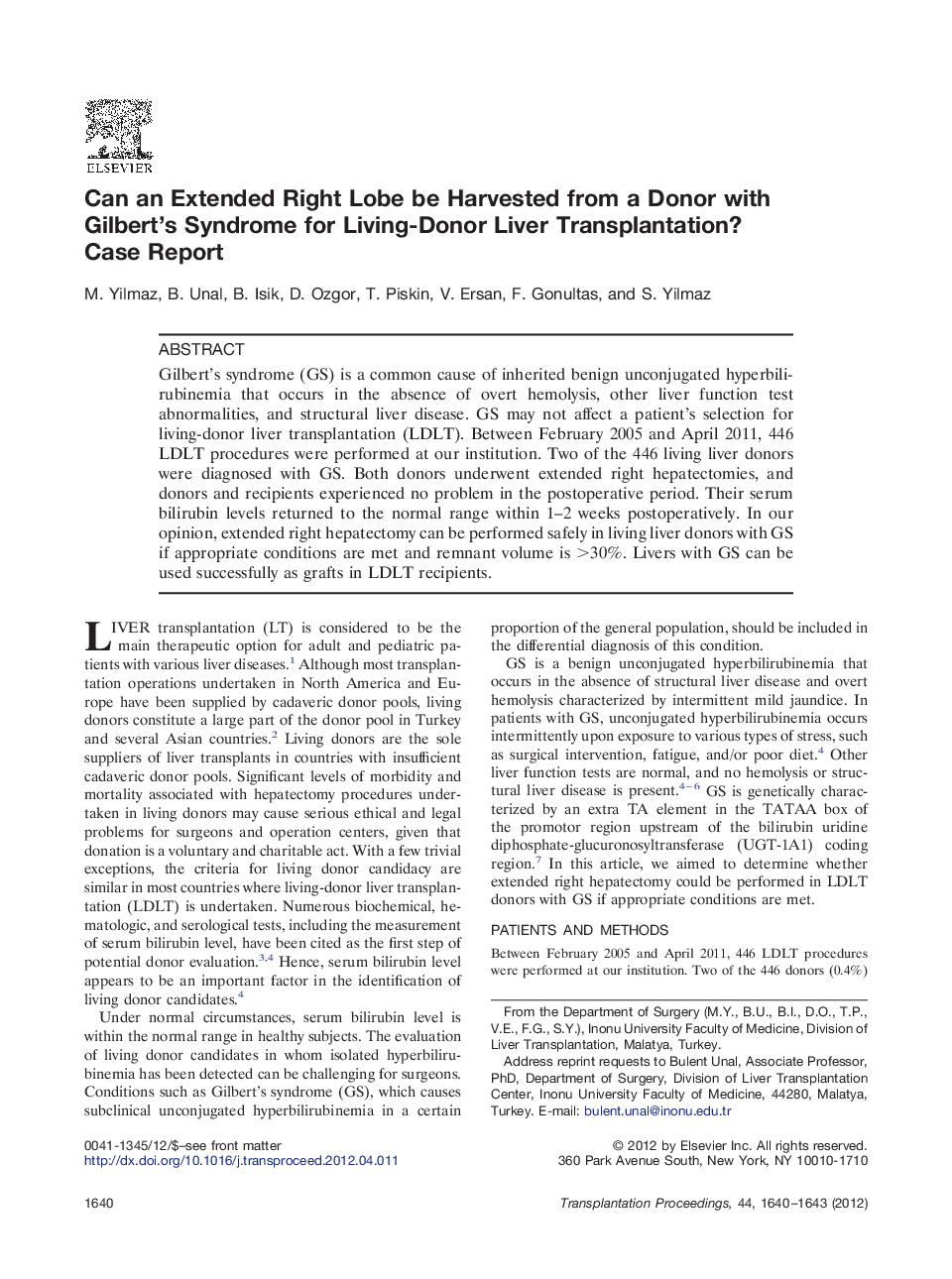| Article ID | Journal | Published Year | Pages | File Type |
|---|---|---|---|---|
| 4259927 | Transplantation Proceedings | 2012 | 4 Pages |
Gilbert's syndrome (GS) is a common cause of inherited benign unconjugated hyperbilirubinemia that occurs in the absence of overt hemolysis, other liver function test abnormalities, and structural liver disease. GS may not affect a patient's selection for living-donor liver transplantation (LDLT). Between February 2005 and April 2011, 446 LDLT procedures were performed at our institution. Two of the 446 living liver donors were diagnosed with GS. Both donors underwent extended right hepatectomies, and donors and recipients experienced no problem in the postoperative period. Their serum bilirubin levels returned to the normal range within 1–2 weeks postoperatively. In our opinion, extended right hepatectomy can be performed safely in living liver donors with GS if appropriate conditions are met and remnant volume is >30%. Livers with GS can be used successfully as grafts in LDLT recipients.
